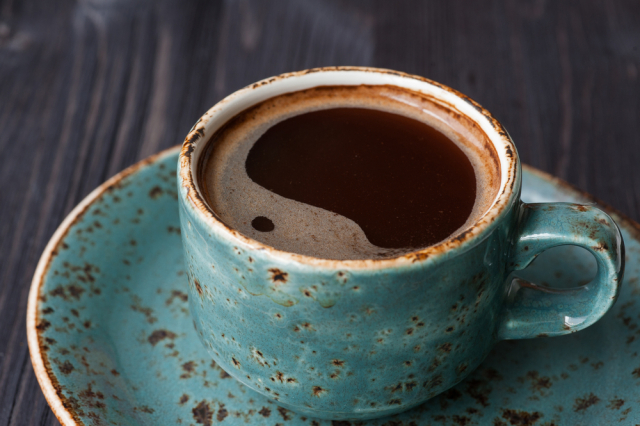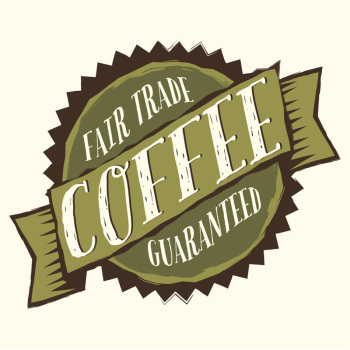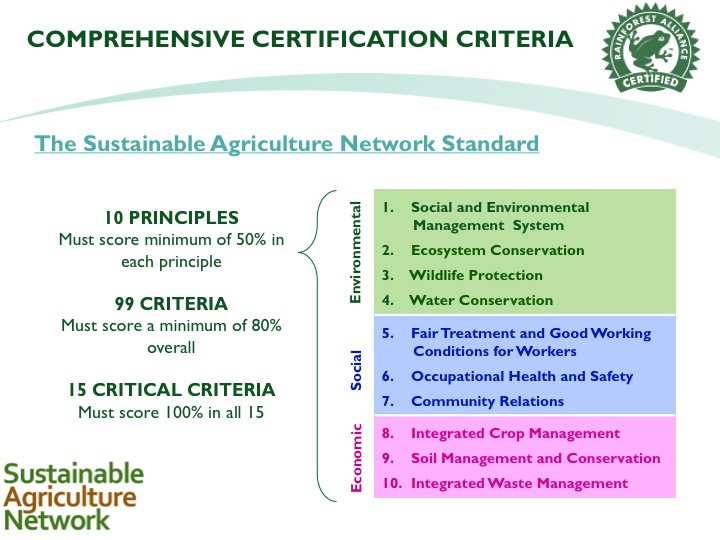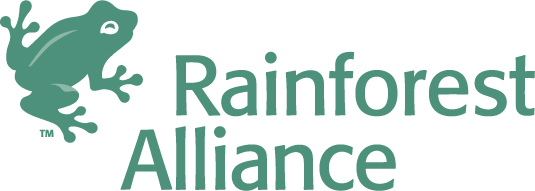
We sure love our coffee in the United States!
Just take a look at the lines outside Starbucks and Caribou Coffee each morning.
In fact, a study published in 2013 found that an average of 85 percent of the U.S. population has at least one caffeinated drink each day. And in February of 2014, the journal Pediatrics found that 73 percent of children consume caffeine daily.
Meanwhile new reports show that due to climate change, our access to coffee (in production & cost) will become harder in the coming years. So for those of us interested in drinking coffee that supports local farmers and protects the environment—what constitutes a sustainable cup of Joe?
As someone who’s accustomed to reading food labels, I hadn’t yet researched the difference in coffee certifications. I wanted to find the most sustainable, farmer-friendly cup of coffee out there.
I hit the internet, I read, I was confused.
And then I called the Rainforest Alliance to help me figure out the difference between organic, shade grown, bird friendly, and the Rainforest Alliance Certified labels. Alex Morgan, Rainforest Alliance’s Senior Manager, noted that all of these labels are good things to see on your bag of coffee beans. He pointed out that there was no shortage of work to be done and said that, “Less than 15 percent of the world’s coffee of global production is certified by one of these programs.”
Coffee labels: What to look for…
USDA organic certification
One of the few labels that means anything these days, this certification lets you know that the coffee wasn’t grown with harmful pesticides, synthetic fertilizers, treated with sewage sludge and doesn’t contain any genetically modified crops. Phew!
Fair-trade coffee
There are several fair trade certifications (Equal Exchange, Fair Trade USA) making it even more confusing for consumers. In general, the concept of fair trade is that farmers will get paid a fair price for the crops they grow—how refreshing. The result of fair wages lifts many farming communities out of poverty and ensures that wealth along the supply chain is equitably shared. Just because something is labeled as fair trade, doesn’t mean the coffee was organically grown, or habitat and environmental concerns were taken into account.
Bird-friendly or shade-grown coffee
This certification program by the Smithsonian Bird Institute, was popular several years ago, and focuses on certifying farms that promote habitat conservation. This label focuses on ensuring coffee farms don’t eliminate critical habitat for birds. The focus of this label is less about reducing exposure to agricultural chemicals and ensuring fair pay, and more about protecting bird habitat.
A label that has it all: Rainforest Alliance
After diving into the world of coffee programs, labels and certifications I found that the Rainforest Alliance has the most robust labeling program, ensuring farms meet a cross section of criteria.
The nuts and bolts of the Rainforest Alliance coffee certification
Unlike the other labels listed above, the Rainforest Alliance certification (apart of the Sustainable Agriculture Standard) considers a cross section of environmental, social and economic issues including: water use, soil quality, wildlife protection, fair and decent working conditions, community relations, farm management, prohibits all child labor, fair wages, pesticide use, deforestation controls, climate change adaptation, and the use of personal protective equipment.
While not requiring farms to be certified under USDA organic standards, the pesticide provisions are stringent and health protective. Integrated pest management is one of the 10 top areas farms must get 100 percent score on, and bans the most toxic chemicals including anything banned by the Environmental Protection Agency, World Health Organization Class 1, the European Union, chemicals on the Pesticide Action Network list, the Dirty Dozen or listed under the Stockholm convention.
In order to receive the Rainforest Alliance certification, a farm must received a 100 percent score on the 15 critical criteria required and they need to get an 80 percent overall score. The farm must also receive 50 percent within each of those 10 categories, needed to show effort in each of their criteria. This is demonstrated by this helpful chart below, republished with permission from Rainforest Alliance.

Companies using Rainforest Alliance Certified coffee
- You can search the Rainforest Alliance’s “Shop the Frog” database to find coffee brands for your home or business.
- Caribou Coffee, a Minnesota based company with national reach, uses 100 percent Rainforest Alliance certified coffee (wow!).
- 100 percent of McDonald’s espresso is Rainforest Alliance certified.
- Dunkin Donuts recently announced that 30 percent of their Dark Roast coffee is certified and they are working towards 100 percent.
Remember, any of these labels are good to see on your coffee; we have a huge role to play as consumers to show demand for sustainable and people-friendly coffee. Ask your local coffee shop or brand to get Rainforest Alliance certified!
Bonus:
Listen to this Green Divas Foodie-Phile segment to learn about a yummy way to make a better cup of coffee…
Want to lower your caffeine intake? Listen to this Green Divas Foodie-Phile with Green Dude Charles Chen about the benefits of switching to Yerba Mate!
And here’s the latest Green Divas Radio Show… for low-stress ways to live a deeper shade of green!
[dynamic-sidebar id=’Custom Widget 2′]

Pingback: Decoding Sustainable Coffee Labels | Care2 Healthy Living